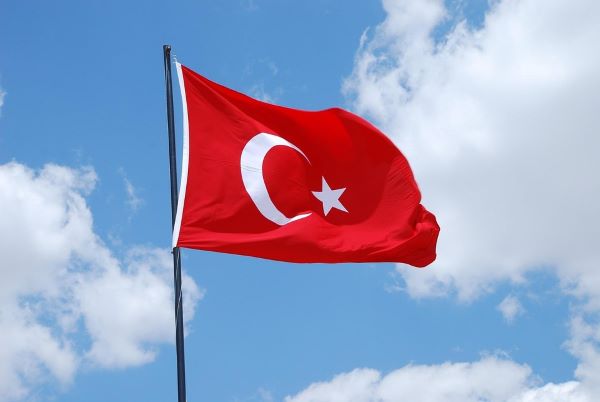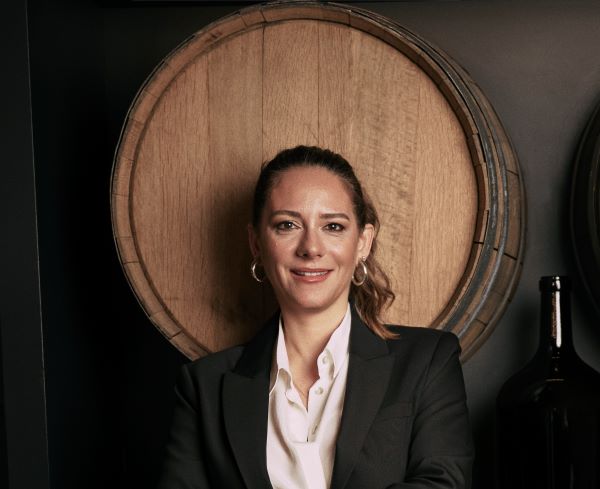Postcard from Istanbul
With its low per capita consumption and devalued currency, Turkey sounds an unlikely savior of the industry. Yet its increasingly urban, youthful population has embraced Scotch with a vengeance as Ron Emler discovers …
Global demand for spirits is in the doldrums and distilleries are either being mothballed or trimming production. As the most popular genre of premium sprit, Scotch whisky is facing challenges having seen exports slump from a peak of £6.2 billion in 2022. There is the squeeze on disposable incomes, a marked slowdown in China, and the looming threat of US tariffs.
Yet against this sombre backdrop there's a beacon of light from an unlikely source, a market where average alcohol consumption is the lowest per capita anywhere in Europe and where 83% of the population are said to be teetotal for religious or cultural reasons. Not only that, there is also a long-standing blanket ban on alcohol advertising.
Step forward Turkey, which in 2023 became a top 10 export market, after sales had soared by 178% since 2019. Last year it sailed past Germany and China to seize eighth position, growing 36.7% to £178m which was by far the best performance within the top ten. And this despite the value of the Turkish Lira falling by more than 80% against sterling from 2019 - 2023.
So, how did this Muslim nation become one of the biggest and fastest growing markets for Scotch?
"There have been many things happening at the same time", says Selkul Tumay, Pernod Ricard's CEO for Africa and the Middle East, including Turkey.

"Over the last 20 years, we were one of fastest growing countries in the world with GDP growth of 5.3% per annum and we are now the 17th largest economy in the world. In 2019, GDP per capita was $9,200 dollars but went up to $15,500 by the end of last year."
Bahar Ucanlar, MD of Diageo Turkey, says that since 2012 Scotch whisky volumes have grown by 18.5% year on year, and that: "Over the past six years the number of whisky consumers in Turkey has increased from 4.7 million to 7.8 million."
"Turkey is a large country of 86 million people, but with quite a young population," adds Tumay. "The average age is 34 versus 44 in the EU."
Accompanying that rapid economic growth has been a significant rural to urban shift with 75% of the population now living in towns. "They [the younger age group] are not under the [cultural and religious] pressure of their families," says Tumay. "Young people are more open to alcohol compared to their parents. That's a cultural thing."
A recent survey showed that alcohol penetration has gone up from around 22% of the legal drinking age population to 30% in the past five years.
Diageo's Ucanlar says that while Scotch was a relatively niche product for many years "it now finds resonance with a much broader demographic spectrum". She points to notable increases in participation among women and younger legal-age consumers, as well as drinkers of other alcohols switching to Scotch.
Since 2019 the percentage of females who drink Scotch has risen from 17% to 37% while among the overall 18 - 29 age group the proportion has risen from 42% to 52%.
An even bigger cultural change is that 80% of alcohol consumption in Turkey takes place in the home with only 20% in bars, clubs and restaurants, reversing the pre-Covid ratio.
This year off-trade consumption of all whiskies will be worth an estimated $472.6m compared to $118.5m in bars, clubs and restaurants.

Tumay and Ucanlar agree that the enforced switch to drinking at home during Covid meant Turks found it more affordable even as their affluence increased.
That has triggered the rise in per capita consumption from 1.5 litres of alcohol pre-Covid to 2 litres today.
"Most people drink blends neat or on the rocks or with water," says Tumay. However, Ucanlar believes that "strategic investment in whisky-based cocktails has really paid off".
She says whisky "is now the second most searched cocktail base in Turkey", a trend that "has opened up the category to younger adults and women – two consumer segments historically underrepresented in whisky consumption."
"The versatility of cocktails plays a huge role in bringing in these new profiles and reshaping the category's image," she says
"Malts are still quite small at the moment," says Tumay. "The market is just developing in Turkey. We are seeing some improvement in malts but that [the category] is quite small."
Some believe that Turkey's ban on advertising alcohol has actually boosted the fortunes of Scotch because of the high usage of social media, especially among the young.
"We cannot do TV, but we are trying most to be seen in the trade outlets, which is a very effective way of reaching out to consumers," says Tumay. "Social media use is very, very high in Turkey."
He is convinced that aspiration among the burgeoning middle class is driving Scotch as a category, and says: "The number of ABCs in Turkey who say they drink alcohol rose from 25% in 2018 to 43% in 2023."
"Whisky is a big part of that growth. In the three years before Covid, it grew as a category by 14%. And in the three years since, it has grown by 30%."

"It's now the number three category in Turkey after beer and rakı – ahead of wine. Whisky now accounts for around 10% of total alcohol consumption, whereas 10 years ago it was less than 1%."
Uncanlar says that as raki prices increased "whisky emerged as a more accessible and competitively-priced alternative," and that "beyond price, whisky is often perceived to offer higher quality [than raki] and aspirational value."
Tumay is proud that Turkey is the highest selling market for Pernod Ricard's Chivas Regal 'family' of blended whiskies, accounting for 17% of the brand's global sales. Chivas Regal is the market leader with its stablemate - Ballantine's in third place, while Diageo's Johnnie Walker Red Label is second, and Black Label fourth.
As the two corporate giants fight for a bigger share of the market, others have noted the potential and are moving in.
Ucanlar says the number of whisky SKUs [stock keeping units] in the Turkish market has risen from 327 to 516 "enhancing consumer choice and driving premiumisation." And only last year Willaim Grant & Sons moved its distribution to Efes, the country's biggest brewer, to beef up its representation in a market that is predicted to continue growing rapidly.

Ron Emler is a financial journalist who has observed the drinks industry for 50 years. Following a career on The Times and the Sunday Telegraph, he is consultant City Editor at The Drinks Business.
